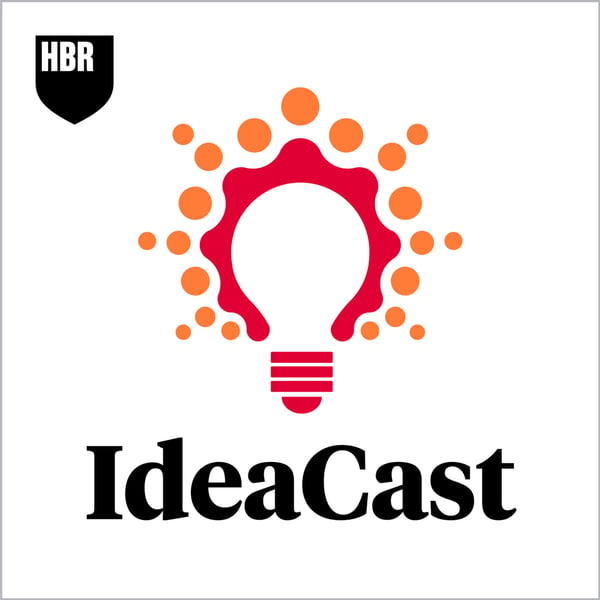Is Cynicism Ruining Your Organization?
HBR IdeaCast
Harvard Business Review
4.4 • 1.9K Ratings
🗓️ 2 August 2022
⏱️ 30 minutes
🧾️ Download transcript
Summary
Transcript
Click on a timestamp to play from that location
| 0:00.0 | So you got the job. Now what? Join me, Eleni Mata, on HBR's new original podcast, New |
| 0:08.1 | Here, the Young Professionals Guide to Work, and how to make it work for you. Listen for |
| 0:13.8 | free wherever you get your podcasts. Just search New Here. See you there! |
| 0:30.0 | Welcome to the HBR idea cast from Harvard Business Review. I'm Ellison Beard. |
| 0:43.8 | Are you a cynic? I, for one, am definitely an expect the worst, hope for the best kind of |
| 0:53.8 | girl. It's not that I lack faith in all other people, or even all organizations, but at |
| 0:59.6 | the same time, I don't count on positive actions or outcomes from most of them. And apparently, |
| 1:04.8 | I might be more optimistic than a lot of you out there listening. In Edelman's 2022 |
| 1:10.0 | trust barometer, nearly 60% of respondents across 27 countries reported that their default |
| 1:16.0 | is to distrust others. Over the past few decades, trust in not just our peers, but also |
| 1:20.9 | our political leaders, institutions, and corporations has plummeted. Unfortunately, that kind of cynicism |
| 1:27.3 | can have really negative consequences for both the people who feel that way and the |
| 1:31.8 | workplaces in which they're employed. Today's guest, Professor of Psychology at Stanford University, |
| 1:37.8 | has studied this phenomenon and has advised for how to combat it. |
| 1:42.2 | Jamil Zaki wrote the HBR article, don't let cynicism undermine your workplace. And he joins |
| 1:47.8 | me now. Jamil, welcome. Thanks for having me. It's great to be here. |
| 1:57.3 | First, how do you define cynicism? It's a really important place to start. I would say that |
| 2:06.2 | cynicism is a theory about the world, and in particular about the social world. It's a theory |
| 2:12.2 | that is kind of like a dark lens that changes the way that we see other people. And in particular, |
| 2:17.6 | it's the theory that individuals are, in general, selfish, greedy, and dishonest. And when you |
| 2:24.4 | take that as a starting point for your view of the world, the way that you start thinking about |
| 2:28.8 | other people, about social interactions changes, you start to detect ulterior motives in everything |
... |
Please login to see the full transcript.
Disclaimer: The podcast and artwork embedded on this page are from Harvard Business Review, and are the property of its owner and not affiliated with or endorsed by Tapesearch.
Generated transcripts are the property of Harvard Business Review and are distributed freely under the Fair Use doctrine. Transcripts generated by Tapesearch are not guaranteed to be accurate.
Copyright © Tapesearch 2025.

